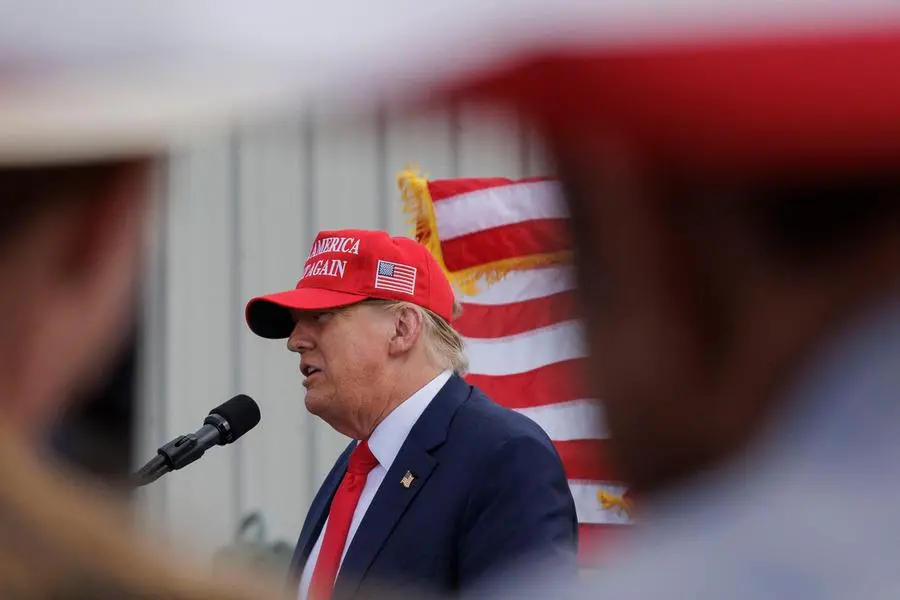PHOTO
Polls show most Americans believe political debate has deteriorated since former president Donald Trump entered the political stage.
Now, as he is running again, researchers say data proves them right.
Using machine learning to sift through nearly a quarter of a billion quotes from politicians extracted from millions of news articles published over more than a decade, Swiss researchers say they have detected a clear trend.
In June 2015, the month that Trump launched his first presidential campaign, the data shows "a big jump in negativity, and then negativity stays high", lead researcher on the study Robert West told AFP.
Trump kicked off his campaign by attacking Muslims, mocking a disabled reporter and calling media workers the enemies of the people, making derogatory comments about women and hinting that political violence was acceptable and desirable.
And that rhetoric has seemingly become commonplace and normalised since then.
West, an assistant professor who heads the Data Science Laboratory at Switzerland's Federal Institute of Technology, said he and his team had been struck by polls showing that a vast majority of Americans believed the tone of US political debate had become less respectful and more negative.
A survey by the Pew Research Center showed that more than half of those polled believed the blame lay with Trump, who served as president from 2016 to 2020 and hopes to win a fresh term in next year's election.
'Massive jump'
"We also had that intuition," West said. "But we are data people, so we asked: 'Can we check if the data actually says the same thing?'"
When they started looking at the issue shortly after Trump won the presidency, they realised they did not have the data at hand to determine scientifically how the political tone had evolved over time.
So they set about building a giant dataset, dubbed Quotebank.
It contains a corpus of 235 million unique quotes extracted from 127 million online news articles published between 2008 and 2020, allowing the researchers to carry out detailed analysis of the tone of US politicians' public language.
West said that during president Barack Obama's time in office from 2009 to 2016, the frequency of negative emotion words in political speech decreased steadily.
But in June 2015, when Trump launched his campaign, negativity swelled significantly, jumping eight percent compared to the baseline level in the previous seven years.
"That is actually a massive jump," West said.
"And it happened the month Trump started his campaign, so that is one sign that Trump might be an important factor behind this."
Trump a 'main perpetrator'
There is another indicator that Trump himself "is one of the main perpetrators of this negativity", he said.
"When you remove Donald Trump's quotes, the size of the jump becomes much smaller, dropping by a magnitude of 40 percent," he pointed out.
He stressed though that even without Trump's own quotes, political speech still markedly deteriorated.
"It's the whole system that basically became more negative."
Interestingly, West said, the negativity did not just spike as Trump ramped up the rhetoric in his bid to win the highest office.
"That initial jump was not just a spike that came from a toxic campaign," he said. "It actually lasted through four years... his entire presidency."
West said the data indicated that there may have been another increase in negativity in mid-2019, when Trump's campaign against current President Joe Biden ramped up.
But it remains unclear if this is just a temporary campaign increase, since the team's access to fresh data stopped in 2020.
The team is searching for new partnerships, with the likes of Google or news organisations, to be able to feed fresh data and quotes into its Quotebank, he said.
But even without fresher data, West said the findings helped shine a light on something that could indicate US democracy is ailing.
"You need to know the symptoms in order to cure the disease," he said.





















